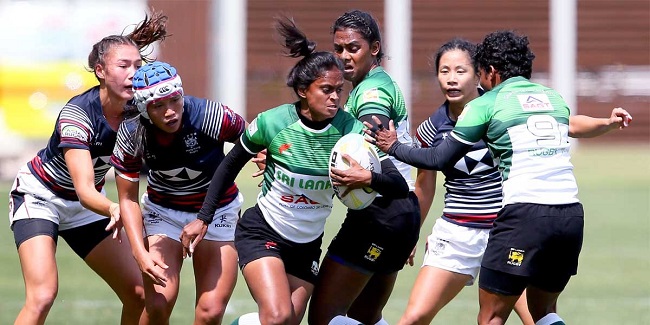At the 2020 Summer Olympics, twelve teams will compete in the women’s rugby sevens tournament (postponed to 2021 due to the COVID-19 pandemic).
The top four teams from the 2018–19 World Rugby Women’s Sevens Series qualify, with Japan automatically qualifying as host. After that, a representative is selected by each of the six continental confederations, and the final qualifying position is decided by an international sevens competition.

Rugby Sevens At The 2020 Summer Olympics – Women’s Qualification
From July 26th to July 31st, 2021, the Tokyo Stadium hosted rugby sevens competitions as part of the 2020 Summer Olympics. There were 24 teams total, 12 male and 12 female. Because of the COVID-19 epidemic, the Tokyo 2020 Olympics had to be moved to a later date.
France, who finished fourth in the shortened World Rugby Sevens Series 2020 and have the support of the home crowd, will be dismayed if they do not earn one of the two spots available in the women’s competition.
After the success of Rio 2016, Colombia will be even more motivated to qualify for another Olympics and may pose a threat to regulars France and Russia in the medal standings.
On June 19 and 20, 2021, Stade Louis II in Monaco hosted the women’s rugby sevens repechage competition that decided who will compete in the 2020 Summer Olympics. The worldwide COVID-19 outbreak forced organisers to push back the competition by a year, to 2021.
Both France and Russia were undefeated in the repechage, making them the two best teams in the tournament. To qualify for the women’s sevens competition at the Tokyo Olympics, they needed only one of the two qualifying spots available.
After four teams qualified via the World Sevens Series, one team qualified from each of six continental qualifiers for both the men’s and women’s championships. There were two spots left, one for the hosts and one for the winners of a worldwide repechage tournament.
China and Russia Made their First Appearances in the Women’s Tournament
As a result, China and Russia made their first appearances in the women’s tournament and Canada, Ireland, and Korea made their debuts in the men’s tournament. Because of COVID rules, four teams had to bow out of the playoff qualifiers.
With a population of just over 900,000 and a catastrophic COVID-19 outbreak that has caused over 25,000 illnesses and 200 fatalities, Fiji’s men’s Olympic team, led by captain Jerry Tuwai, won a small upset over the World Champions New Zealand. The bronze medal earned by Argentina was the first for South America in this competition.
With a thrilling quarterfinal victory over defending champions Australia, the Fijian women put their stamp on the sport as well. Losing to New Zealand in a thrilling semi-final, they came back to beat Great Britain for third place and the bronze medal. As expected, New Zealand defeated France in the final to claim their first Olympic gold medal in rugby.
After four teams qualified via the World Sevens Series, one team qualified from each of six continental qualifiers for both the men’s and women’s championships. There were two spots left, one for the hosts and one for the winners of a worldwide repechage tournament.
As a result, China and Russia made their first appearances in the women’s tournament and Canada, Ireland, and Korea made their debuts in the men’s tournament. As a result of COVID rules, four teams had to bow out of the playoff qualifiers.
Fiji’s men’s Olympic team, led by captain Jerry Tuwai, beat the world champions New Zealand by a slim margin in an upset victory. This was despite the fact that the country was experiencing a severe COVID-19 outbreak, with more than 25,000 cases and 200 deaths among a population of just over 900,000. With their bronze medal, Argentina made history as the first South American country to ever win an Olympic medal in any sport.
Final Words
On the women’s side, the Fijian team made headlines when they shocked defending champion Australia in the quarterfinals. Their semi-final match against New Zealand was dramatic as well, but they came back to beat Great Britain for the bronze medal.
The perennial rugby powerhouses, New Zealand, beat France in the final to win an Olympic gold medal.


